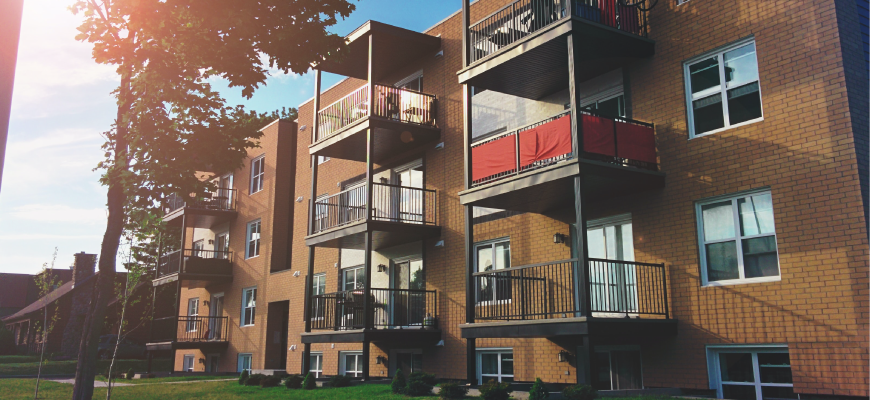![]()
Applying for a rental can be stressful, especially in this competitive housing market. If you're wondering what to do after a denied rental application, consider the options available: You can try to find out why you were rejected, write an appeal letter or look for another rental. It might take some perseverance, but by finding out what went wrong, addressing the issue and continuing to apply, you’ll set yourself up for submitting a successful application down the road.
Your rental application might be unsuccessful for several reasons. It's important to be aware of why your application might have been rejected so that you can take steps to improve your chances of being approved.
Your gross income is inaccurateIf your gross income is inaccurate on your rental application, it could impact your ability to qualify for the apartment. Gross income is your total annual pay from your job before taxes, and other deductions, are taken out.
Most experts recommend spending no more than 30% of your income on rent. If your gross income is $3,000 per month, you should not spend more than $900 monthly on rent. If you are spending more than that on rent, it may be difficult to afford other necessities such as food, transportation, and utilities. You may also have difficulty saving money for emergencies or future goals. However, that percentage might be closer to 50% – or even higher with housing in short supply in many parts of the country. The thing to keep in mind is that if a landlord sees that most of your salary will go towards rent, they may hesitate to rent to you.
If you have roommates, the landlord may consider each person's income before renting to you to ensure that if a roommate moves out, one of you will still cover the rent. Landlords can verify your income by asking for pay stubs, tax returns, or other financial documents.
If you are self-employed, the landlord may ask for bank statements or other documentation to verify your income. However, if you’ve changed jobs or just started a freelance career recently, a landlord might not get the full picture of your finances, so it's important to ensure they have all the accurate information they need.

Most landlords will look for any criminal or eviction history and your credit score . A bad credit score may not necessarily disqualify you from renting, but it could make finding a place to live more difficult.
If the background check reveals that you are a first-time renter, the landlord may require a guarantor or co-signer. A guarantor is someone who agrees to pay your rent if you are unable to do so. A co-signer agrees to be responsible for the lease with you.
Some landlords may also require that you have a certain income level or job stability to qualify for the rental.
Incorrect or incomplete information on the applicationIncorrect or incomplete information on a rental application can include inaccurate job history, false references, or omitting important information. So make sure you fill out the application carefully. Double-check to ensure it’s complete and you haven’t made any mistakes.
You have no credit history or a low credit scoreIf you apply for an apartment but have no credit history or a low credit score, the landlord may require a guarantor or co-signer. You may also get approved by offering to sign a longer lease or finding a roommate with good credit.
If you have rented previously, one way you can give your credit history an immediate boost is by adding up to 24 months of past rent payments to your credit report with Borrowell .
Add at least 12 months of past rent payments to your credit report and we’ll refund the one-time fee of $59 if your credit score doesn’t increase. Terms and conditions apply.
Start building creditOnce you have secured a rental, it could be a good idea to look into ways that you can build your credit score with your future rent payments , so that you’ll have a stronger credit score the next time you are looking to move home.

When landlords check references, they usually contact previous landlords to ask about your rental history. They may also contact your employer to verify your income.
A good reference for a rental application is someone who can speak to your character and rental history in a positive way. This could be a previous landlord, employer, or someone else who knows you well. It is important to provide references who are easy to reach and willing to answer questions about you honestly.
Pets or smokingSome landlords may be willing to rent to you if you have a pet or are a smoker, but others may not–it all depend’s on the building’s policy. It is best to ask the landlord upfront about their policy on pets and smoking.
The property is no longer availableIf you apply for a rental but are no longer available, the landlord may keep your application on file in case another unit becomes available. You can also ask the landlord if they know of other rentals that might be a good fit for you.
If you're denied a rental, don't give up hope. Talk to the landlord and ask for feedback on why they rejected your application. Then, use that information to work on improving your situation.
For example, if your credit score is low, you can take steps to improve it by paying your bills on time and reducing your debt. If you have a criminal record, try finding housing willing to work with people with your background. With perseverance and effort, you can eventually find the right rental.
Ask if there is a possibility of resubmitting the application with the missing informationIf you were denied a rental because of missing information on your rental application, give the landlord a call or send an email. Ask them if you can reapply and if there’s more information they need from you.
If you've been rejected for a rental, you might be able to send an appeal to the landlord. Submit a written request to the landlord or property management company. In your request, you should explain why you think the decision to reject your application was unfair. It's important to be polite and professional in your request, as the landlord might be more likely to reconsider their decision if they feel you're respectful and reasonable.
After you've submitted your request, the landlord will have a chance to respond. They might approve your appeal and allow you to rent the unit or deny your appeal and stand by their original decision. Either way, it's important to be prepared for both outcomes when you're going through the process.
Alternatively, if you think the landlord rejected you based on your race, background, status or orientation, you can file a human rights complaint .
Writing an appeal letterYou can write an appeal letter to the landlord if you believe you were unfairly denied a rental. In your letter, explain why you think it was unfair and include any documentation that may support your case. It is important to remember that just because you send a letter does not mean the decision will be reversed. Here is a template appeal letter you can use:
Dear Landlord,
I am writing to appeal the decision to reject my rental application. I understand that there were concerns about my credit score and rental history, but I want to assure you that I am a responsible tenant who will take good care of your property. I am confident that I can overcome any challenges in my past and be a great tenant for your rental.
I would appreciate the opportunity to speak with you about this decision and discuss how I can be a reliable and trustworthy renter for your property. I am eager to find a place to call home and would be grateful for the chance to rent from you. Thank you for your time and consideration.

If you still don’t get the apartment and know why then continue to resolve the issue. For example, continue to work to build up your credit score. However, consider reapplying if the rejection was based on something as simple as missing information on your application.
Can You Apply for the Same Apartment Twice?If you've already been denied, you might wonder if applying for the same apartment again is worth it. The answer depends on the landlord and the reason for your rejection.
Some landlords might be willing to give you another chance if you were rejected for a minor issue, like a low credit score. However, other landlords might not be as forgiving, especially if you were denied for something major, like a history of prior evictions.
It's always best to talk to the landlord directly to find out their policy on reapplying after a rejection. They might be willing to give you another chance, but they might also tell you to find another rental. Either way, it's important to be respectful and understanding when discussing your application with the landlord.
Finding somewhere to live isn’t easy. Inaccurate applications, pets, smoking, bad references, poor or no credit history, and a bad background check might make it even harder. Fortunately, there’s a lot you can do to address these issues. Just make sure you find out why you’ve been rejected and use that information to your advantage.
In the end, creating a good rapport with the landlord means you’re more likely to get that information and be considered for another unit if one comes up, so be sure to be polite no matter what.